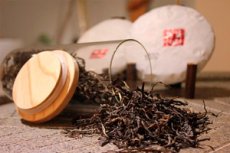New publications
Which tea is healthier for blood vessels?
Last reviewed: 02.07.2025

All iLive content is medically reviewed or fact checked to ensure as much factual accuracy as possible.
We have strict sourcing guidelines and only link to reputable media sites, academic research institutions and, whenever possible, medically peer reviewed studies. Note that the numbers in parentheses ([1], [2], etc.) are clickable links to these studies.
If you feel that any of our content is inaccurate, out-of-date, or otherwise questionable, please select it and press Ctrl + Enter.

There is an opinion that green tea is healthier than black tea. But, as it turns out, it is black tea that is able to slow down the processes of oxidative stress in the aorta of patients after radiation therapy.
The benefits of green tea are mainly due to the presence of plant polyphenols in it, which significantly reduce the risk of cardiovascular disease in people predisposed to such diseases. In addition, polyphenols alleviate the symptoms of atherosclerotic manifestations, have a positive effect on cellular structures. But such plant components are present in both green and black tea. Therefore, it is difficult to say for sure which drink is healthier. Representatives of the Institute of Biophysical Theory and Experiments tried to understand this issue. Based on the results of the work, they concluded that black tea is still healthier for blood vessels.
Scientists compared how both drinks are able to block the development of oxidative stress inside the aorta after exposure to radiation. What are oxidative stress processes? We are talking about an increase in the number of active oxygen species, aggressive oxidative molecules that affect the course of various intracellular reactions. In previous studies, specialists found that radiation exposure as part of radiotherapy activates ACE (angiotensin-converting enzyme), which is of great importance in regulating blood pressure. However, due to the hyperactivity of ACE, there is an increase in active oxygen species: in particular, they can increase the risk of developing atherosclerotic changes in blood vessels.
Scientists conducted experimental studies on rodents. Rats were offered tea of varying saturation, after which they were exposed to radioactive irradiation. Then the activity of the angiotensin-converting enzyme was measured, as well as the number of active oxygen variations inside the aorta. The experiment showed that drinking tea reduced both the active position of ACE and the number of oxidative molecules. Remarkably, the black drink demonstrated greater effectiveness than the green one. A much smaller amount of black tea was required to completely suppress intra-aortic oxidative stress, and the effectiveness became noticeable much earlier.
Scientists note that green tea does contain many useful substances that can independently trigger oxidative stress processes. However, black tea has a more pronounced effect in this situation.
It is quite possible that with the help of a well-known and familiar drink it is possible to block the processes of intravascular oxidative stress. Such stress becomes inevitable for patients undergoing radiotherapy treatment of malignant tumors, because radiation also affects healthy tissue. In the future, specialists suggest studying the polyphenol components of tea separately from each other, comparing their activity and the degree of influence on oxidative reactions in blood vessels.
Full details of the study are available on ScienceDirect
